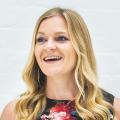
More than 1,000 Coronavirus Mutual Aid groups have launched across the UK in the space of a week. But how did it all come about?
Lead image: Tumisu from Pixabay
Within days of the first Facebook page launching in south London, a UK-wide network of online organisations has now formed to help isolated people during the Covid-19 pandemic – some of which have thousands of members already.
An army of volunteer have joined the groups to deliver goods to those unable to leave home in their areas, and users of the groups have described them as a vital boost with NHS services, which are likely to become very stretched in the coming weeks.
Co-ordinator for the national Covid-19 Mutual Aid umbrella group, Kelsey Mohamed, said the response had been ‘overwhelming’.
‘It shows us what’s possible when we prioritise simple compassion,’ she said. ‘People are self-organising with incredible efficiency, respect and creativity.’
#ViralKindness leaflets have been dropping through doors all over the country
Many of the groups formed through #ViralKindness leaflet being delivered through letterboxes in a particular area.
Seren John-Wood helped set up the first mutual aid group in Lewisham, south London, on Thursday 12 March.
The theatre worker and her housemates distributed hundreds of leaflets around their local area asking if people needed deliveries of food or medicine.
Shortly afterwards, the friends decided to launch an umbrella organisation to guide the various groups around the UK.
‘I’ve never really spoken to my neighbours. London can be a bit like that, it can be a lonely place. But we saw this huge outpouring of solidarity and neighbourliness straight away’
In Lewisham, the support network has grown to the extent that those in need of assistance are marking their windows with a red piece of card. There are now 4,000 members on the local Covid-19 Mutual Aid page.
Nicola Spurr, who works for non-profit organisations, set up a WhatsApp thread in Westminster and quickly saw hundreds of people volunteer to shop for the elderly, deliver medicine and walk dogs.
‘I’ve lived in Lancaster Gate for two years and I’ve never really spoken to my neighbours. London can be a bit like that, it can be a lonely place,’ she said. ‘But we saw this huge outpouring of solidarity and neighbourliness straight away.’
Dieticians, therapists and dementia specialists were among some of the people offering their services for free.
Users of Mutual Aid groups are being urged to exercise caution, however, over fears that criminals could take advantage of informal set ups to exploit the vulnerable.
In Brighton and Hove, a councillor is creating an ID card with a space for a photograph to ensure the helper is who they say they are. Mutual Aid is advising its groups to check up on who is offering help.
A post to a national group said: ‘If you are giving or receiving help, tell someone, a friend, family member, or someone on this group, what the plan is. Even if you think you’re the most savvy person ever, ask them if something sounds off.’
‘Finding the Islington Mutual Aid group lifted our spirits and changed our view of the future’
In most cases, the groups are providing hope to elderly residents who could be forced to self-isolate for four months.
Islington resident Hope Winter-Hall has a disability care package and is looking after her 92-year-old mother.
‘We already know that social services and the NHS were overwhelmed before this virus hit,’ she said. ‘I am very well prepared for months of isolation but I will be needing help before it is over.
‘Finding the Islington Mutual Aid group lifted our spirits and changed our view of the future.’



Comments: Our rules
We want our comments to be a lively and valuable part of our community - a place where readers can debate and engage with the most important local issues. The ability to comment on our stories is a privilege, not a right, however, and that privilege may be withdrawn if it is abused or misused.
Please report any comments that break our rules.
Read the rules here